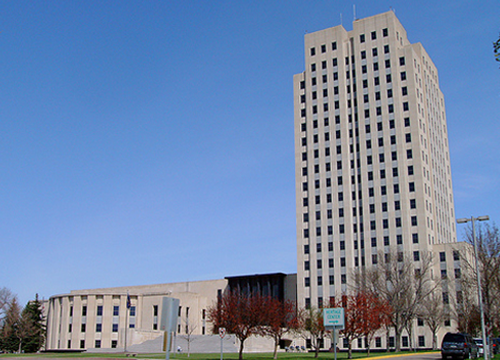John Olsud: If Legislating Through The Courts Is Bad, How About Legislating Through AG Opinion?

 Much attention has been paid in recent weeks to decisions of the United States Supreme Court. Critics claim the Court is legislating when it interprets the language in the constitution. This article is about a similar issue involving not the courts but opinions of the Attorney General of this state.
Much attention has been paid in recent weeks to decisions of the United States Supreme Court. Critics claim the Court is legislating when it interprets the language in the constitution. This article is about a similar issue involving not the courts but opinions of the Attorney General of this state.
During my years as director of the North Dakota Legislative Council, some of my proudest moments were when I advised legislative leaders to ignore opinions of the Attorney General, and sometimes they followed my advice. There is much confusion over the relevance of opinions by the Attorney General, but they are just opinions, not law, although there can be consequences if public officials do not follow those opinions. This article is about a couple of times when my advice was not followed, and instead, the advice of the Attorney General prevailed. Both examples involve the State Board of Higher Education.
The first issue involves the names of institutions of higher education in this state. Article IX of the Constitution of North Dakota lists the various institutions in this state, including the institutions of higher education. It then provides that no other institution of a character similar to any one of those located by Article IX “shall be established or maintained without a revision of this constitution.”
The Legislative Council’s legal staff consistently advised legislators that the state constitution listed only two universities—one in the original constitution and the addition of the State University of Agriculture and Applied Sciences by a later amendment. If any other universities were to be created, we advised, it would take an amendment to the constitution, which requires a vote of the people. It took two votes of the people to change the name of the Agricultural College to a university (NDSU).
The people in Minot wanted to rename their state college a university. We told legislators it would take a constitutional amendment. Legislators from that city went to the Attorney General, and he wrote an opinion saying the Legislature and the State Board of Higher Education could change the names of any of the institutions of higher education. As a result, the Legislature then established four new universities—in Minot, Dickinson, Valley City, and Mayville.
[mks_pullquote align=”left” width=”300″ size=”24″ bg_color=”#000000″ txt_color=”#ffffff”]During my years as director of the North Dakota Legislative Council, some of my proudest moments were when I advised legislative leaders to ignore opinions of the Attorney General[/mks_pullquote]
I still think the advice we provided, based on the clear language in the constitution, was correct, and the constitution should have been amended to create new universities.
Another time my advice was not followed was when the chancellor system was established. The Legislative Council staff was working with an interim committee studying the structure of higher education. One option under consideration was to change from a commission system to a chancellor system. Because the state constitution provides for a commissioner of higher education, and there is a substantial difference between a commissioner and a chancellor, we advised the committee a constitutional amendment would be required to make the change.
Much to our surprise, we read in the papers that the State Board of Higher Education had gone ahead and adopted the chancellor system, based upon advice from the Attorney General’s office. Instead of taking issue with this decision, legislators dutifully amended statutes to adopt the chancellor system to bring the statutes into conformity with practice.
As a result of these attorney general decisions, North Dakota now has six universities in the higher education system, even though the constitution provides for two and says it takes a revision of the constitution to establish an institution similar to those named. In addition, North Dakota has the chancellor system in higher education, even though the constitution provides for a commissioner of higher education.
Perhaps it is sour grapes on my part, but I still think our advice was corrects and there should have been votes of the people to create new universities and to establish the chancellor system in higher education. Interpretations of constitutions sometimes result in significant changes in the way our governments work, whether those interpretations are by courts or by attorneys general.




